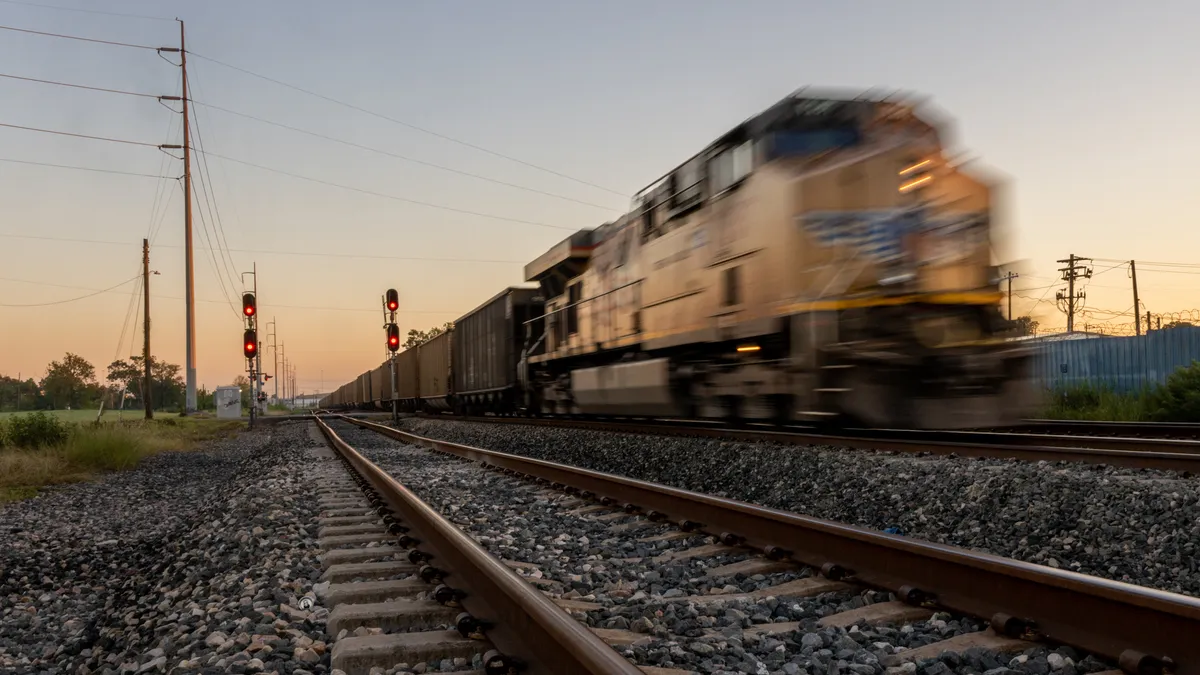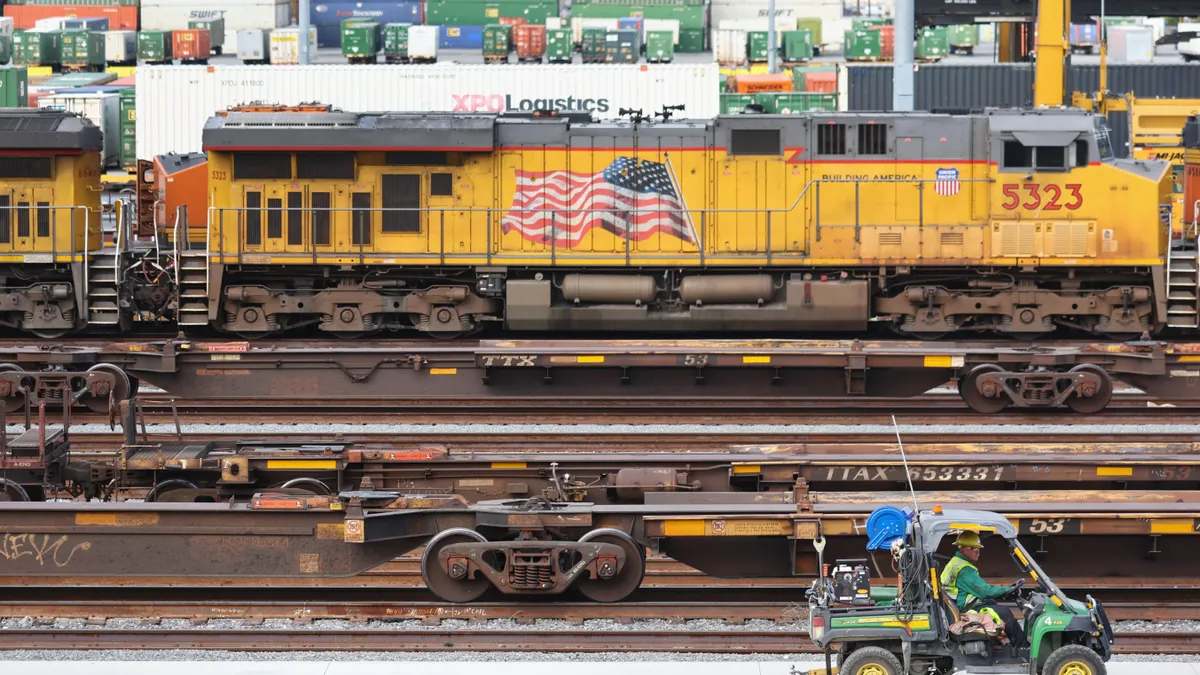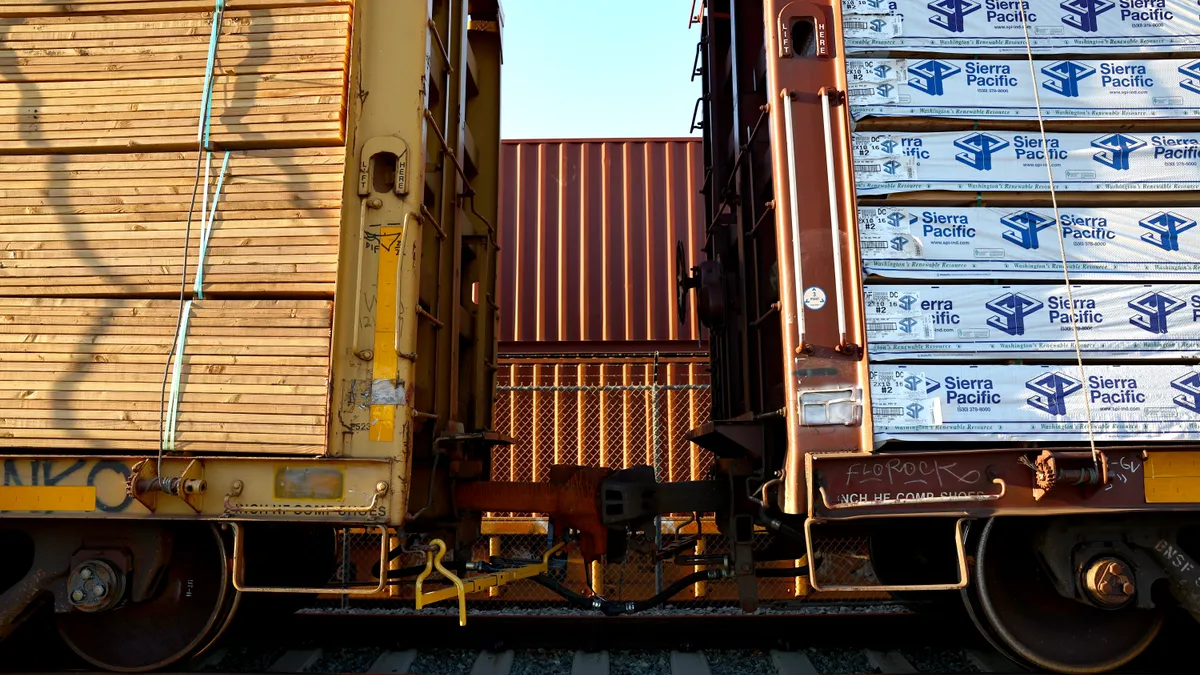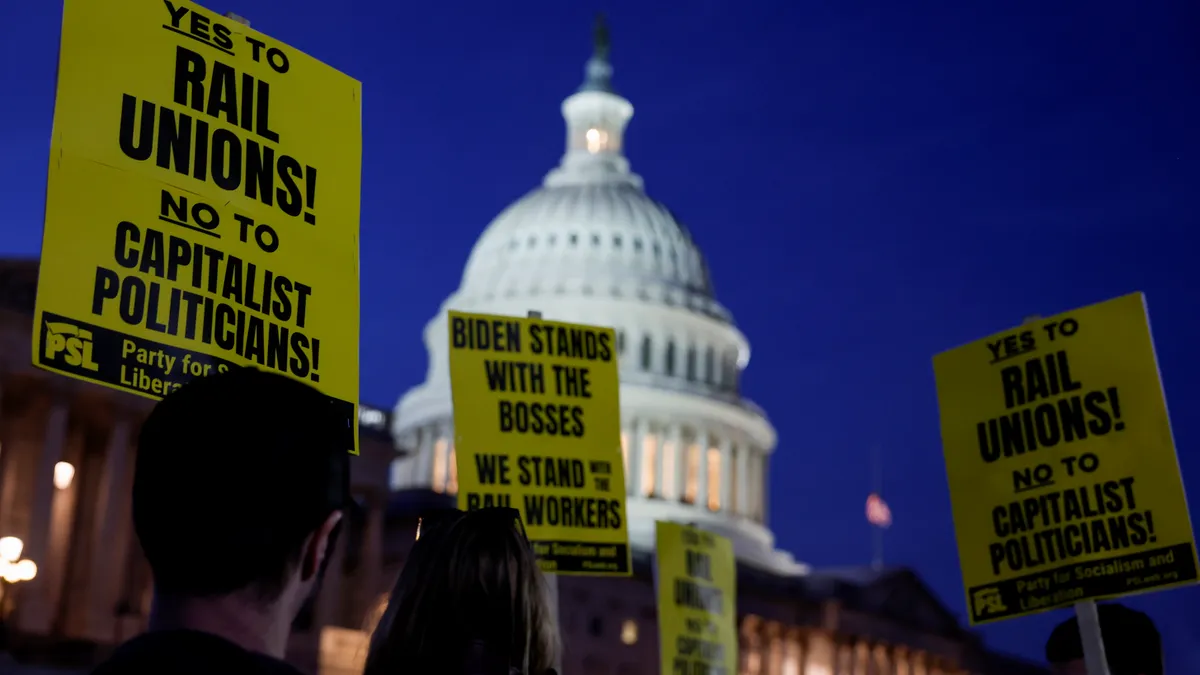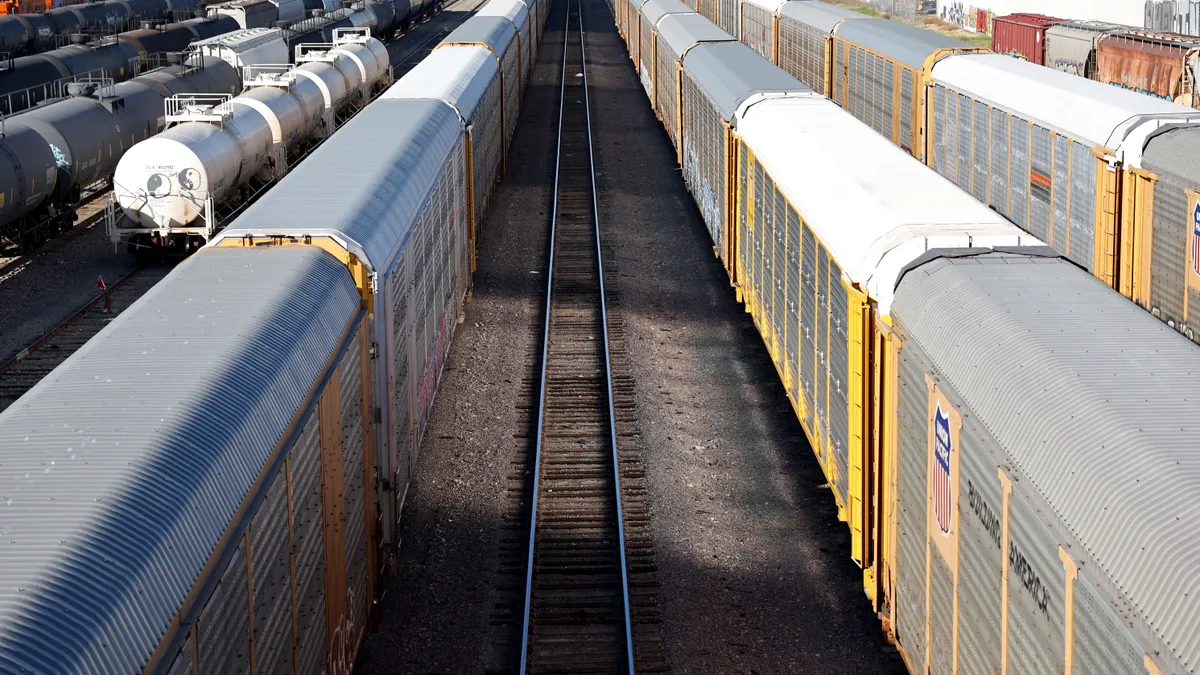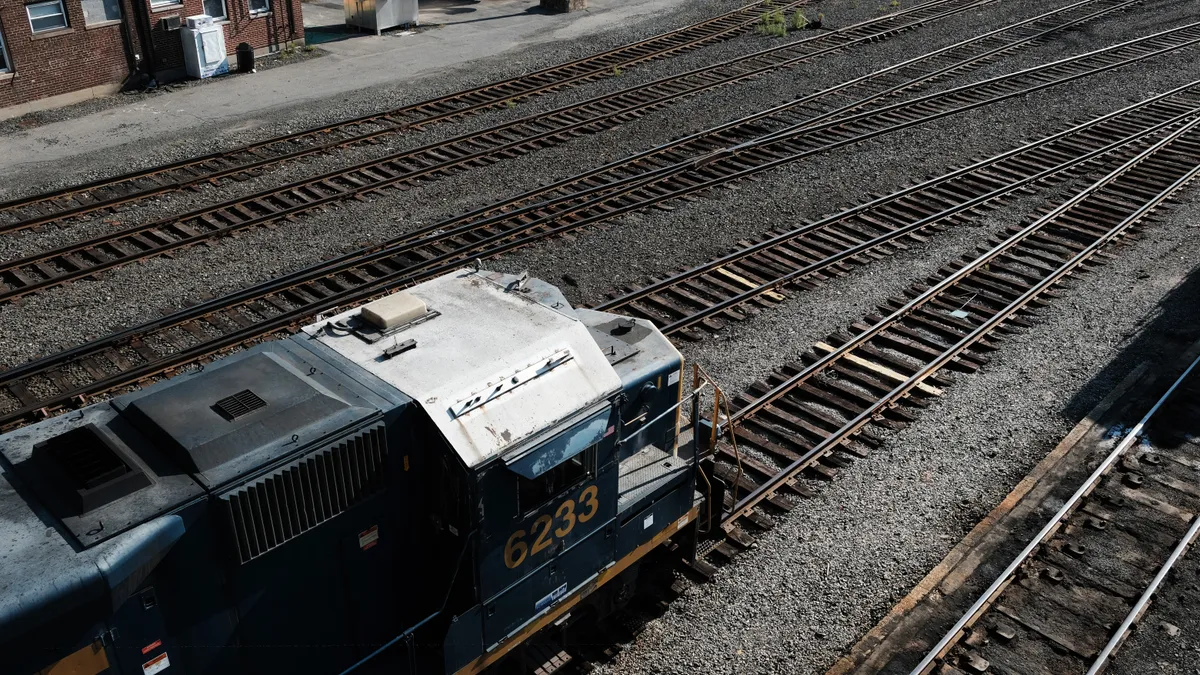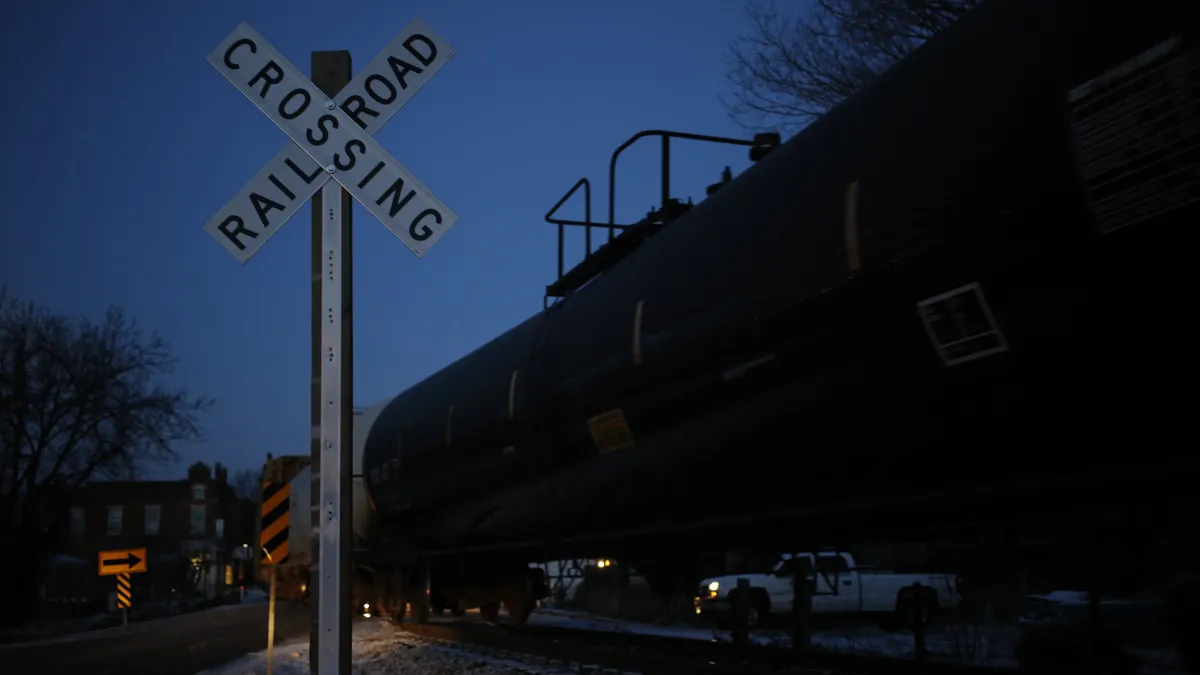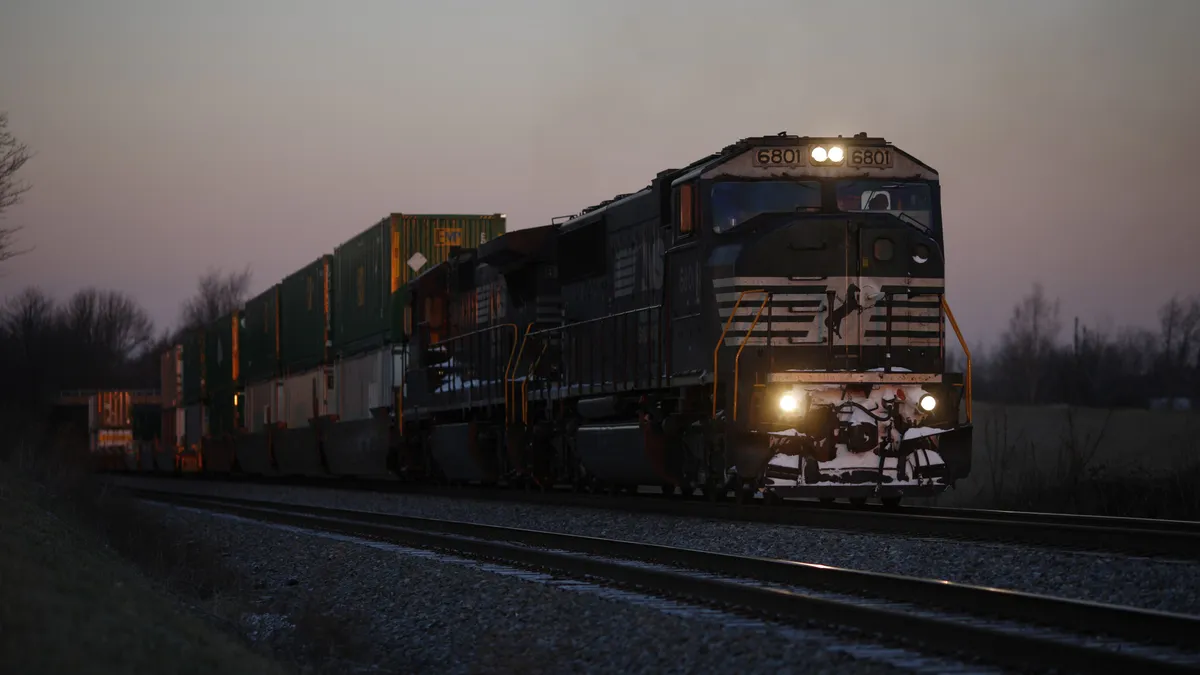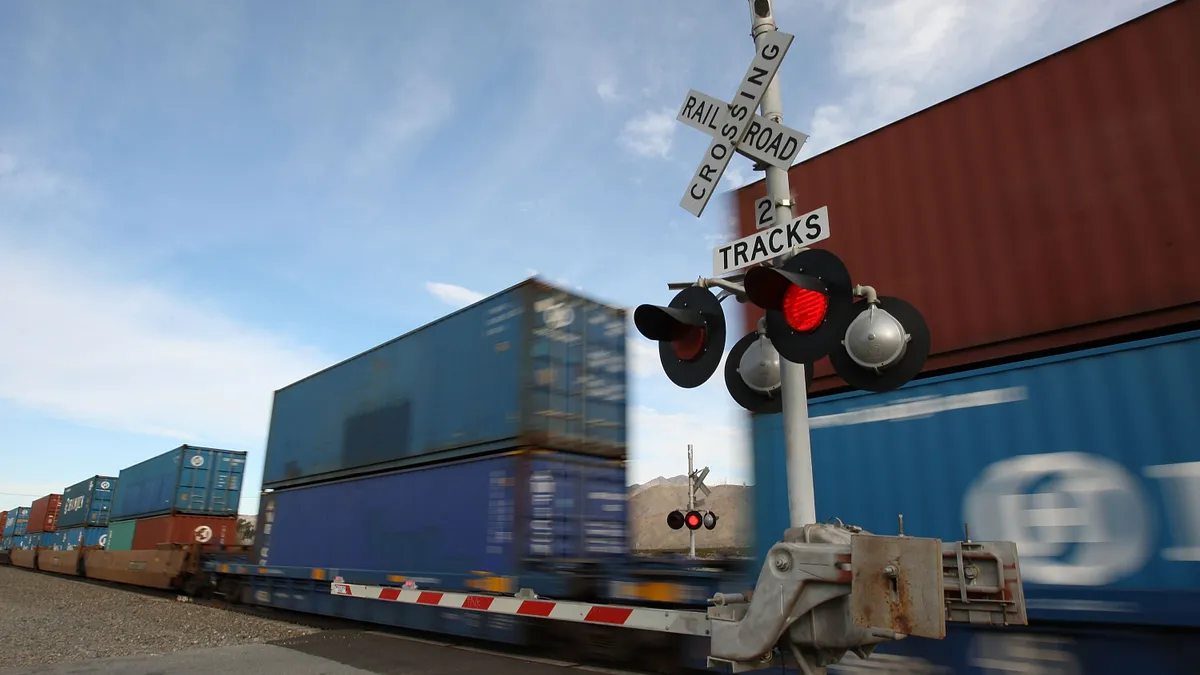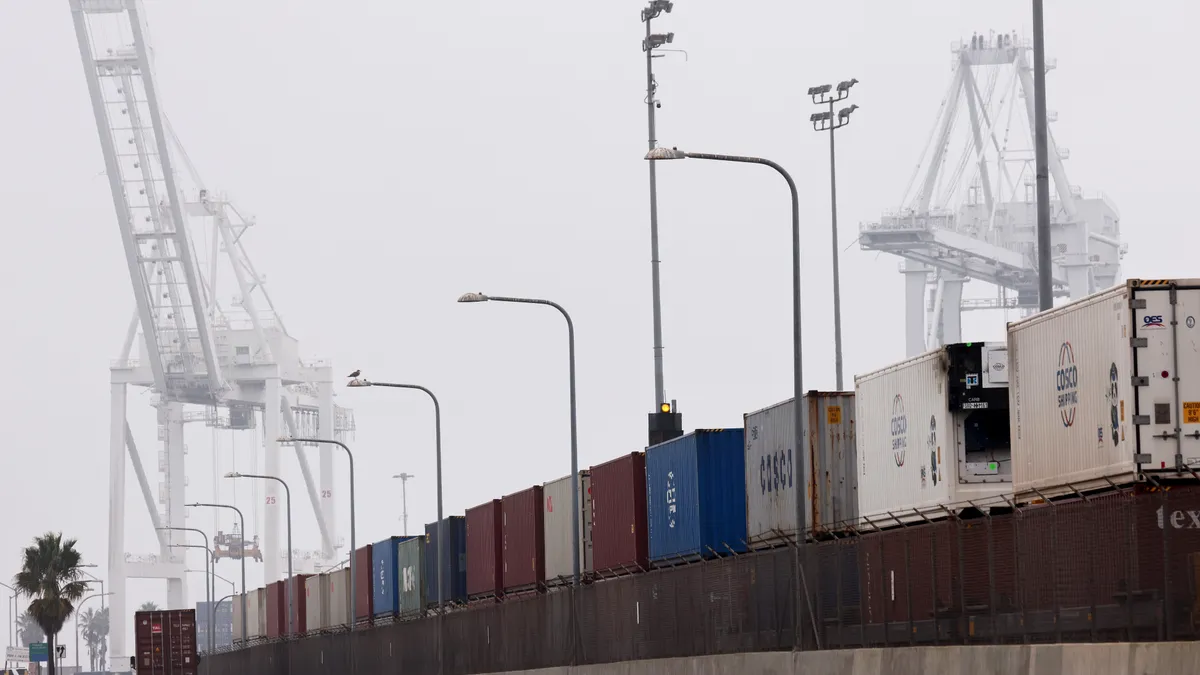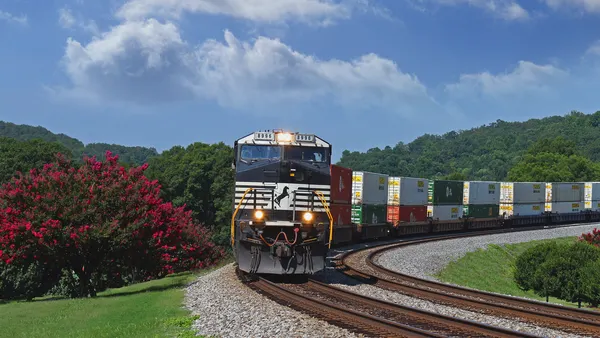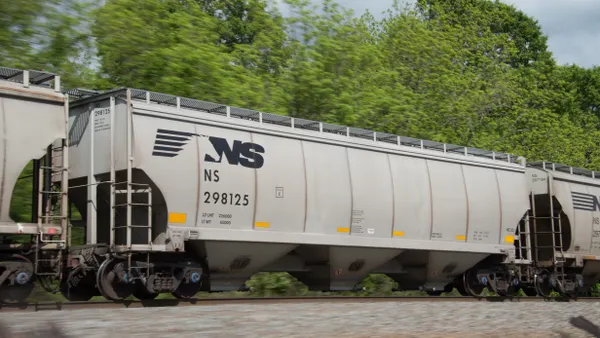The largest rail union in the U.S. rejected its labor contract Monday, setting the stage for a potential shutdown of the nation’s freight rail system in as soon as two weeks.
Rank-and-file members of SMART-TD rejected the agreement, with 50.87% of conductors represented by the contract voting it down. The rejection comes the same day the country’s second largest union, the Brotherhood of Locomotive Engineers and Trainmen, announced its members approved their contract.
“SMART-TD members with their votes have spoken, it’s now back to the bargaining table for our operating craft members,” SMART-TD President Jeremy Ferguson said in a statement. “This can all be settled through negotiations and without a strike. A settlement would be in the best interests of the workers, the railroads, shippers and the American people.”
SMART-TD, which represents more than 28,000 workers, is the fourth to reject the contract brokered by the Biden administration, as workers push for the inclusion of guaranteed sick leave. Workers say they are subject to unpredictable schedules and punishing attendance policies that discourage them from taking time off in the face of an unexpected illness.
Railroads have resisted the call, saying that sick leave goes beyond the recommendations of the Biden administration’s presidential emergency board. SMART-TD has agreed to a cooling off period until Dec. 9, and the third-largest union — the Brotherhood of Maintenance of Way Employes Division of the International Brotherhood of Teamsters — confirmed it would move back its deadline to align timelines.
Another union that rejected its contract, the Brotherhood of Railroad Signalmen, could take action sooner. The union’s deadline for an agreement is Dec. 4, and a spokesperson did not reply to a request for comment on whether the group would extend its cooling off period.
If an agreement isn’t made before the deadline, Congress may intervene under the Railway Labor Act to prevent significant supply chain disruptions. A bill in Congress drafted by Republicans would force unions to accept the baseline deal put forth by the Biden administration without the enhanced benefits that were later negotiated.
Railroads warn that they will begin to reduce service even before the agreement deadline to prevent potentially hazardous freight from being abandoned. Ahead of a September deadline to reach an agreement, carriers deployed embargoes throughout their networks.
A strike or lockout could cost the economy around $2 billion per day, according to the Association of American Railroads. The American Chemistry Council, which represents chemical manufacturers, said in an emailed statement last week that a freight rail shutdown could lead to the closure of many facilities within five to seven days.
Shippers representing the retail, agricultural and manufacturing sectors have renewed calls on Congress to intervene, warning that a rail shutdown would wreak havoc on already-fragile supply chains.
“Millions of hardworking Americans rely on the freight rail system for their jobs and the economic security of our country,” National Retail Federation President and CEO Matthew Shay said in a statement Monday. “A nationwide rail strike during the peak holiday season will be devastating for American businesses, consumers and the U.S. economy.”



